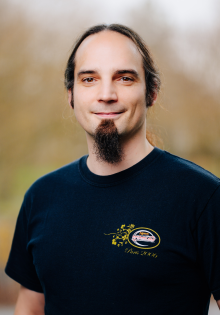Scientists at Paderborn University are working with Atrineo AG to set up an extracurricular meeting and educational centre for quantum technologies as part of the joint project "Introducing Generation Z to the quantum physics mindset" (HedwiQ). The so-called Generation Z predominantly refers to young adults who were born between 1997 and 2012. The project, which is being funded by the Federal Ministry of Education and Research (BMBF) for a period of three years with around 600,000 euros, was launched on 1 October.
Interactive educational centre in the world's largest computer museum
Data transmission, communication, technology: quantum technologies are becoming increasingly important in our society. However, the fundamental properties of quantum mechanics and therefore the potential of the innovations based on it are often only known to scientists. This poses considerable problems: Not only the training of workers in this field, but also the qualified handling of future quantum technologies by the population is massively impeded. In collaboration with the Heinz Nixdorf MuseumsForum (HNF) in Paderborn, the partners in HedwiQ are tackling precisely this problem: In the school laboratory of the world's largest computer museum, they are developing an interactive educational centre to familiarise pupils with the quantum mechanical world view. "By constantly assessing and optimising the educational offer, we can ensure that potential workers and users are prepared for future quantum technologies in the best possible way," says Prof. Dr Klaus Jöns, HedwiQ project coordinator. The physicist heads the Hybrid Quantum Photonic Devices working group at Paderborn University. Together with his colleagues, he uses state-of-the-art fabrication and measurement methods to make photonic quantum technologies suitable for everyday use. His team specialises in the development and integration of miniaturised components for the generation and storage of quantum states.
Concept for museums, educational institutions and cultural centres
The interdisciplinary approach in the joint project is particularly innovative: quantum scientists from the Institute for Photonic Quantum Systems (PhoQS) and education experts from the Department of Technology Didactics at the Institute of Electrical Engineering and Information Technology at Paderborn University as well as qualified museum educators from the HNF are working together to continuously improve the school laboratory programme. Following its successful implementation, the knowledge education format offers enormous potential: it can be established throughout Germany and used in various educational centres - for example in science and technology museums or in educational and cultural associations.
This text has been translated automatically.


